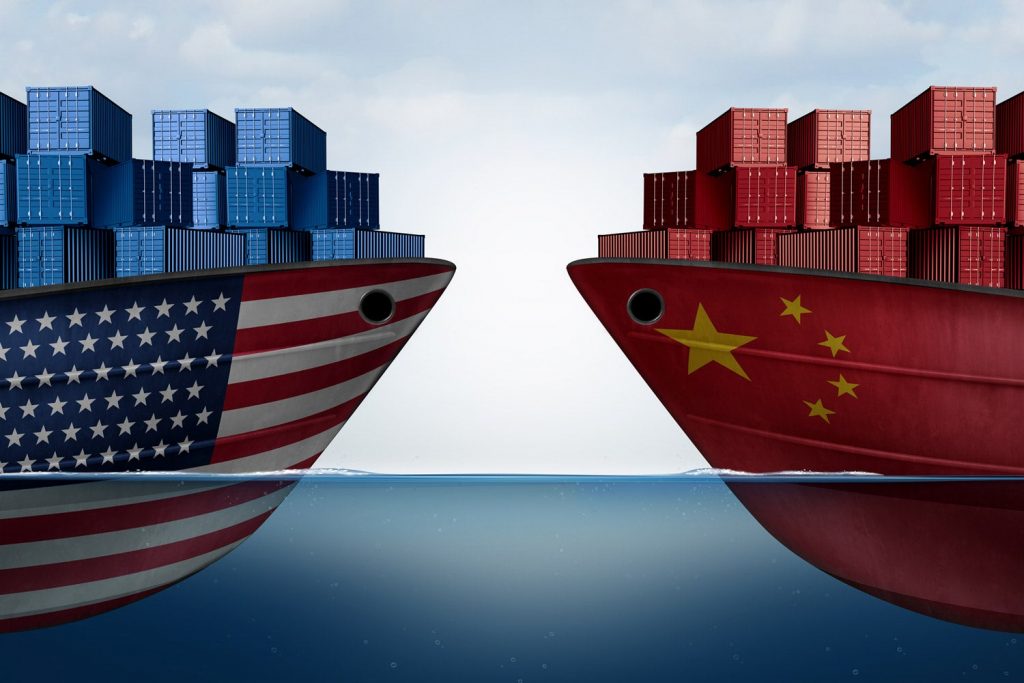The world watched as the escalating trade war between the United States and China triggered unprecedented turmoil in Chinese markets, leading to widespread panic selling and investor fear. A dramatic plunge in Hong Kong and mainland Chinese stocks illustrates the far-reaching consequences of the ongoing tariff conflict, propelling investors to rethink their strategies in the face of significant economic uncertainty.
Panic Selling Grips the Market
Recent reports indicate that a closely-watched gauge of Chinese shares listed in Hong Kong has fallen by an astounding 13.8%, pushing it into a bear market. The Hang Seng Index suffered its worst day since 1997, effectively erasing all gains made during the year, while the mainland’s CSI 300 saw a reduction of 7.1% in its value.
As tensions escalated, fears surrounding the economic fallout of rising tariffs prompted a flurry of sell-offs. Portfolio manager Sat Duhra stated, “This selloff we see is incredible for all the wrong reasons. There is an element of panic selling, of course; there are margin calls we need to be aware of; funds are selling down to raise cash and China retaliation has introduced more risk with a currency devaluation now on the table in the eyes of investors.” The stock turnover in Hong Kong reached a staggering HK$621 billion ($80 billion) on a single day, underscoring the frantic pace of trading amid the crisis.
Global Impact of China-U.S. Tensions
The ramifications of the trade conflict are echoing across global markets, particularly throughout the Asia-Pacific region. As reports of escalated tariffs by President Trump emerged, trade sentiment took a steep dive, paving the path for a risk-off mood among investors everywhere. Japan, for example, saw its benchmark Nikkei 225 fall 7.83%, while South Korea’s Kospi index plummeted by 5.57%.
UOB Kay Hian chief investment officer Qi Wang commented, noting that “the market will trade on these reactions” — indicating a volatile marketplace influenced by both geopolitical developments and economic repercussions. Wang is closely monitoring the European Union’s responses, as further retaliations from major economies could exacerbate the situation. Furthermore, political sentiments in the U.S. are becoming more unfavorable, with consumer dissatisfaction potentially affecting Trump’s approval ratings.
Bond Markets and Safety Assets See a Surge
In these tumultuous times, investors are opting for the security of government bonds, which surged as many fled to the safest available assets amid fears regarding the economy. Benchmark 10-year government bond yields dropped significantly, with some nearing all-time lows. This dramatic shift signifies a broader trend of urgency among investors as they seek shelter from the growing storm of economic instability.
Commenting on the extreme reaction in the markets, Vincent Chan, a China strategist at Aletheia Capital Ltd., stated that the global trade system that has sustained the economy for the last ninety years is collapsing, leading to increased uncertainty about where the market bottom lies. The expectation of further liquidity withdrawal adds a layer of complexity to the analysis of future market behaviors.
Market Analysis Moving Forward
The outlook for Chinese stocks remains fraught with uncertainty as traders grapple with the intricate web of trade tensions. Analysts predict that until a diplomatic resolution is established, markets will continue to react aggressively to news, whether positive or negative.
Investors are urged to remain vigilant, considering both local and international factors. The political landscape in the U.S. holds particular weight, as the administration’s next moves will undoubtedly shape market sentiment moving forward. The potential for new tariffs or trade resolutions could pivotally influence both the Chinese economy and overall global markets.
- Key insights include:
- The trade conflict’s immediate impact on stock markets.
- The significant sell-offs across Asia-Pacific markets.
- Government bonds’ rise as a safe haven amidst turmoil.
- Future monitoring of governmental responses in both China and the U.S.
Conclusion: Navigating Uncertainty in Investment
Investors and stakeholders worldwide are faced with an unpredictable future as the trade war between the U.S. and China escalates. The overwhelming volatility seen in various financial markets necessitates a reassessment of risk and investment strategies. As analysts continue to navigate this shifting landscape, both volatility and opportunity lurk around every corner, requiring diligence and a proactive approach to investment in these uncertain times.
In conclusion, understanding the complexities of the current trade conflict and its repercussions is essential for anyone looking to navigate the markets effectively. By staying informed and adapting strategies to meet these changes, investors can better position themselves in a rapidly evolving economic environment.

